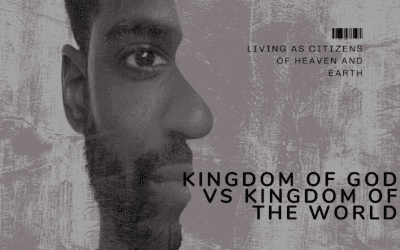The Prodigal Son
Embracing True Repentance and Divine Love
The parable of the prodigal son is a timeless story of rebellion, redemption, and a father’s boundless love. Yet beneath the surface of wild living and regret lies a profound message about repentance and our true identity as children of God.
A Journey Through the Parable
Found in Luke 15 (beginning in verse 11), this story invites us to explore the transformative power of turning back to God. It starts with a son who, in an act of defiance, demands his inheritance early—almost as if to say, “I wish you were dead.” With his newfound freedom, he squanders his wealth in reckless living, only to face severe hardship during a famine. Reduced to feeding pigs—a task that would have been unthinkable for a Jewish man—he reaches his lowest point, both physically and spiritually.
At last, overcome by hunger and desperation, the son “comes to his senses.” But what does that mean? Is this moment the embodiment of true repentance?
The Nature of Repentance
Consider the son’s initial plan:
“How many of my father’s hired servants have food to spare, and here I am starving to death! I will set out and go back to my father and say to him: Father, I have sinned against heaven and you. I am no longer worthy to be called your son; make me like one of your hired servants.”
At first glance, these words seem like a confession of guilt. However, his motivation is driven primarily by hunger and the desire to alleviate his immediate suffering. He is not returning as a beloved son seeking forgiveness but as a desperate servant craving a meal. This distinction challenges many of us who, when straying from our path, might approach God with the mindset of trying to earn His favour through our efforts.
The Father’s Unconditional Response
The narrative shifts dramatically with the father’s reaction:
“But while he was still a long way off, his father saw him and was filled with compassion for him; he ran to his son, threw his arms around him, and kissed him.”
The Greek term to describe the father’s compassion conveys a deep, heart-wrenching emotion—a powerful love that defies any measure of human calculation. Without allowing the son to finish his rehearsed apology, the father immediately acts with extravagant grace:
“Quick! Bring the best robe and put it on him. He put a ring on his finger and sandals on his feet. Bring the fattened calf and kill it. Let’s have a feast and celebrate. For this son of mine was dead and is alive again; he was lost and is found.”
Each gesture is laden with symbolic meaning:
– The Best Robe: Represents the robe of righteousness, covering the son’s shame.
– The Ring: Signifies restored sonship and the honour of belonging to the family.
– Sandals: Indicate freedom and a rightful place as a child, not a servant.
These acts reveal that true repentance is not found in the pig pen or self-deprecating rituals. Instead, it is discovered when we allow ourselves to be embraced as cherished children by our Heavenly Father.
Rethinking Our Identity
True repentance—or metanoia—is a complete change of mind. It goes beyond mere regret; it is the moment we see ourselves through God’s eyes. Scriptures such as Colossians 1:22, Ephesians 1:4, and 2 Corinthians 5:21 remind us that our reconciliation with God is not achieved through merit. Instead, it is a present reality in Christ. We are seen as holy, righteous, and blameless—not because we have earned it, but because we have been redeemed.
The Older Brother’s Lesson
The parable also introduces the older brother, who, despite his faithfulness, harbours a sense of entitlement:
“Look! All these years, I’ve been slaving for you and never disobeyed your orders. Yet you never gave me even a young goat so I could celebrate with my friends.”
Even though the older son never strayed physically, he missed the essence of his father’s heart by viewing his relationship with God in transactional terms. The father’s gentle reminder—”My son, you are always with me, and everything I have is yours”—challenges us to consider whether we are labouring under a burden of self-righteousness rather than resting in the joy of being loved unconditionally.
Embracing the Invitation
The message of the prodigal son is clear: true repentance is not about grovelling in self-condemnation but accepting the transformative identity that God bestows upon us. Instead of seeing ourselves as lost or unworthy, we are invited to step out of the pig pen of shame and into the loving arms of our Heavenly Father.
Let us shed the mentality of having to earn God’s favour. Embrace the reality that in Christ, you are already clothed in righteousness, adorned with the ring of sonship, and set free with the sandals of divine liberty. This is the repentance worth celebrating—a joyful return to the identity of a beloved child, embraced fully and forgiven completely.





